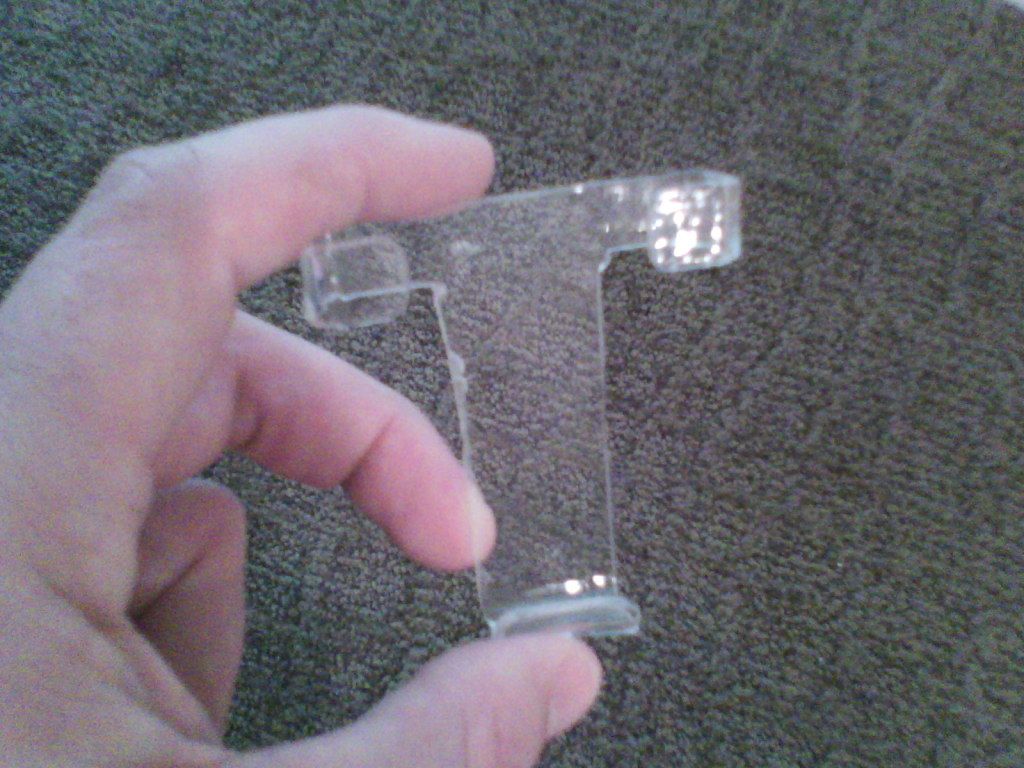Anyone know anything about DIY vacuum forming? I need to make some big vents in about the place where my rear side glass is on my challenge car. In my mind, I want a part that kinda looks like this:
 Would like to make it of 1/8"(?) polycarbonate aka Lexan. Thinking this is as easy as making a plug with MDF and Bondo, a plywood box with pegboard on one side, a shop vac and a big oven.
Would like to make it of 1/8"(?) polycarbonate aka Lexan. Thinking this is as easy as making a plug with MDF and Bondo, a plywood box with pegboard on one side, a shop vac and a big oven.
Most of the DIY examples I see are of small stuff. What are the limitations on making really big thermoformed/vacuum formed plastic parts. I'm thinking fenders, door skins, anything that doesn't get too hot (hood might not work so well.)
We did that kind of stuff in high school.
Nice frame work to hold the sheet plastic was on large drawer slides in to a big pizza oven. Warm untill it started to sag in the middle pull out and over mold raise mold up and turn on vacuum. The molds we made were Plaster of parison the bottom with 1/16 holes drilled every inch or so. those lead to a common vacuum box under the mold. Crap that was 24 years ago....dam.
Ive actually been fooling around with this on a smallish scale recently...Ive been using a propane plumbers torch and just fooling around with techniques.
And Ive been stealing a lot of technique from THIS PDF LINK...Most of it goes over my head, but there are some really good tips in there too, with good pics and descriptions.
And here is a build thread thats using a very similar design in Lexan - AWD TWIN ENGINE DEL SOL - linked is page 3, and the final product is on page 4.

Forum messed up the PDF link, think it's supposed to go to:
http://www.atoglas.com/literature/pdf/135.pdf
I am watching this with interest.

Hal
Dork
3/28/12 10:10 p.m.
44Dwarf wrote:
We did that kind of stuff in high school.
Nice frame work to hold the sheet plastic was on large drawer slides in to a big pizza oven. Warm untill it started to sag in the middle pull out and over mold raise mold up and turn on vacuum. The molds we made were Plaster of parison the bottom with 1/16 holes drilled every inch or so. those lead to a common vacuum box under the mold.
I did similar with my middle school students when I taught shop. We built a box with a metal plate on the top with many small holes in it which was hooked to the shop vacuum system. The top had a frame hinged to it with hacksaw blades inset to hold the plastic in place. The molds were made of wood with many holes to let the air be drawn out.
We had an oven that would handle a 2' x2' sheet of plastic. Heat plastic up to temp, lay on mold/vacuum box, hold down the clamp frame and turn on the vac.
 Would like to make it of 1/8"(?) polycarbonate aka Lexan. Thinking this is as easy as making a plug with MDF and Bondo, a plywood box with pegboard on one side, a shop vac and a big oven.
Would like to make it of 1/8"(?) polycarbonate aka Lexan. Thinking this is as easy as making a plug with MDF and Bondo, a plywood box with pegboard on one side, a shop vac and a big oven. 































